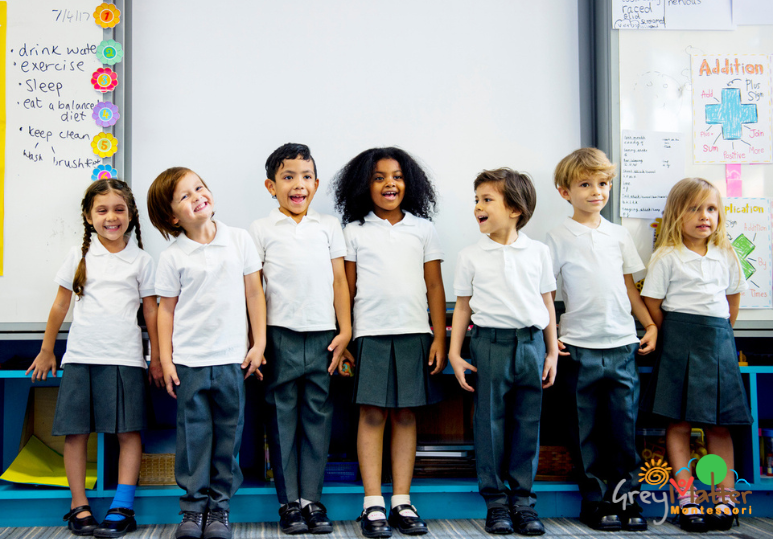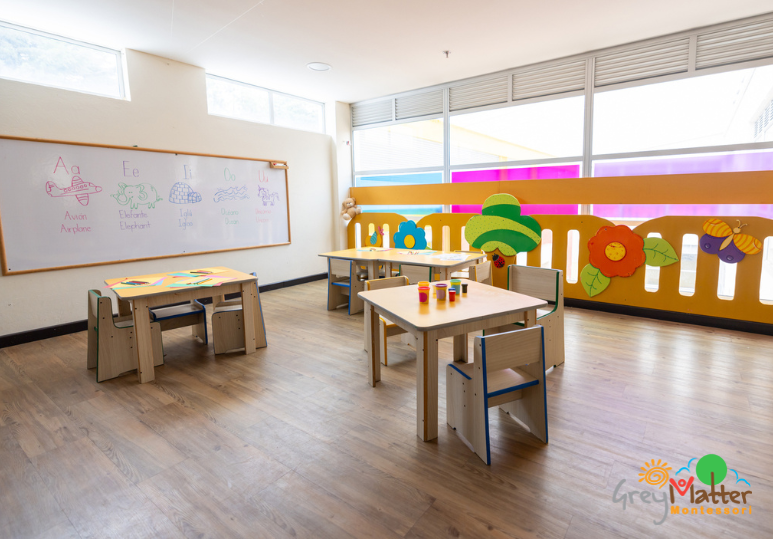In the nurturing halls of Grey Matter Montessori, we believe in the power of education to not only impart knowledge but also to cultivate character. Central to our philosophy is the empowerment of students through the Montessori method, particularly in the realm of conflict resolution. This holistic approach not only addresses the immediate challenges of disagreements but also sows the seeds for the development of empathetic, resilient, and self-assured individuals. In this exploration, we delve into the Montessori strategies for conflict resolution and their enduring benefits.
At Grey Matter Montessori, our commitment to fostering a peaceful and respectful learning environment goes hand in hand with empowering our students to navigate conflicts independently. Recognizing the importance of these life skills, we've integrated Montessori principles that guide students toward self-resolution of disputes, thereby promoting a culture of understanding and empathy. This article sheds light on these transformative practices and their role in shaping well-rounded individuals capable of contributing positively to their communities.
The Role of the Prepared Environment
The Montessori classroom, or the 'prepared environment', is designed to encourage cooperation, respect, and peaceful interactions among students. By offering a space that values autonomy and respect for others, children learn to work and play in harmony. This environment naturally minimizes conflict but, more importantly, provides a constructive framework for addressing disputes when they arise. At Grey Matter Montessori, furniture is arranged to promote collaborative learning, and materials are shared to foster a sense of community—each element contributing to the development of interpersonal skills crucial for conflict resolution.
Guided Conflict Resolution Skills
Montessori educators play a crucial role in guiding students through the process of resolving their conflicts. This guidance is not about imposing solutions but about facilitating a dialogue that allows children to express their feelings and listen to others. Through modeled behavior and direct instruction, students learn to use "I" statements, empathize with their peers, and find mutually beneficial solutions. These practices empower students to handle future conflicts independently, equipping them with valuable life skills that extend beyond the classroom walls.
The Peace Curriculum
An integral component of the Montessori approach is the peace curriculum, which is woven into daily activities and interactions. This curriculum includes lessons on emotional literacy, cultural understanding, and the importance of peace at both personal and global levels. At Grey Matter Montessori, we engage students in discussions, storytelling, and projects that highlight these themes, encouraging them to apply these lessons in their interactions. This proactive approach to peace education lays the groundwork for a school culture where bullying is naturally abhorred and conflicts are resolved constructively.
Empathy and Emotional Intelligence Development
The Montessori method places a strong emphasis on the development of empathy and emotional intelligence. Through mixed-age classrooms, students learn to care for and mentor younger peers, witnessing firsthand the impact of their actions on others. Role-playing and social scenarios are also used to enhance students' ability to understand and relate to different perspectives. This emphasis on empathy not only aids in conflict resolution but also fosters a community where each member feels valued and understood.
The Montessori approach to conflict resolution at Grey Matter Montessori is not merely about managing disagreements; it's about empowering students with the skills, empathy, and self-awareness necessary to navigate life's challenges. By creating a prepared environment, guiding students in conflict resolution skills, implementing a peace curriculum, and fostering emotional intelligence, we nurture individuals who are not only capable of resolving conflicts on their own but also committed to contributing to a more peaceful world. The benefits of this approach extend far beyond the classroom, as students emerge as confident, empathetic individuals equipped to lead, inspire, and make meaningful contributions to their communities. At Grey Matter Montessori, we take pride in our role in this transformative process, witnessing daily the positive impacts of these Montessori principles on our students' lives.
Written on behalf of Grey Matter Montessori.
FAQs
Q: What is the peace curriculum and how does it contribute to conflict resolution?
A: The peace curriculum is an integral part of our Montessori education, focusing on emotional literacy, cultural understanding, and the importance of peace. Through discussions, storytelling, and projects, students learn valuable lessons in empathy and understanding, crucial for resolving conflicts and fostering a harmonious school culture.
Q: Can Montessori methods help children develop empathy?
A: Yes, Montessori methods are highly effective in developing empathy. Through mixed-age classrooms, role-playing, and social scenarios, students learn to understand and relate to diverse perspectives, enhancing their emotional intelligence and ability to empathize with others.
Q: How are students guided through conflict resolution?
A: Students are guided through conflict resolution by being encouraged to use "I" statements to express their feelings, listen to their peers, and collaboratively find solutions that benefit everyone involved. Educators model these behaviors and provide direct instruction when necessary, always emphasizing the development of independent resolution skills.






